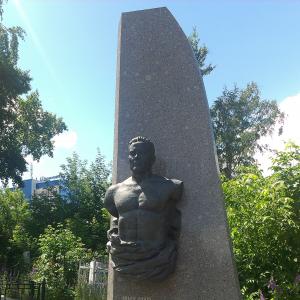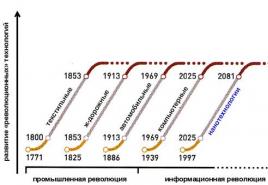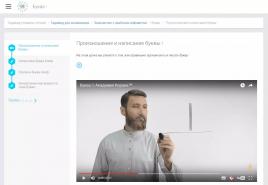The preposition de in Portuguese. Articles - Portuguese language
This lesson covers the following topics: Prepositions in expressions for time and place, demonstrative pronouns . This course is prepared to help you learn grammar and complete vocabulary. Try to concentrate on the following examples as they are very important for learning the language.
Prepositions
Grammar Tips:
Prepositions in expressions for time and place and demonstrative pronouns are very important to learn because they are used in everyday communication. Try to remember the new words you have. Also try to write down words that you do not understand or expressions that you are not familiar with.
The following table provides some examples, please read them carefully and determine if you can understand them.
You are finished with the first table. Did you notice any grammatical patterns? Try to use the same words in different sentences.
Prepositions - Expressions
The following table will help you understand this topic more deeply. It's important to remember any new words you come across because you'll need them later.
| Prepositions | Prepositions |
|---|---|
| O | sobre |
| higher | acima |
| through | através de |
| after | depois |
| against | contra |
| between | entre |
| near | em torno |
| How | como |
| V | em |
| to | antes |
| for | atras |
| below | abaixo |
| under | abaixo |
| next to | ao lado de |
| between | entre |
| outside | alem |
| But | mas |
| By | por |
| despite | apesar de |
| down | para baixo |
| during | durante |
| except | exceto |
| For | para |
| from | de |
| V | em |
| inside | dentro de |
| V | em |
| near | perto |
| next | proximo |
| from | de |
| By | em |
| against | oposto |
| from | fora |
| outside | fora de |
| for | sobre |
| V | por |
| plus | mais |
| round | aproximadamente |
| With | desde |
| how | que |
| through | através de |
| to | até |
| To | para |
| To | em direção a |
| under | sob |
| unlike | differente de |
| to | até |
| up | para cima |
| through | via |
| With | com |
| V | dentro de |
| without | sem |
| 2 words | duas palavras |
| in accordance with | conforme |
| because of | por causa de |
| close to | proximo a |
| because of | devido a |
| except | exceto |
| far from | distante, longe |
| inside | dentro de |
| instead of | em vez de |
| next to | perto de |
| next to | proximo de |
| outside | fora de |
| to | antes de |
| 3 words | três palavras |
| how much | tanto quanto |
| and also | bem como |
| in addition to | alem de |
| before | na frente de |
| despite | apesar de |
| on behalf of | em nome de |
| at the top | em cima de |
| demonstrative prepositions | pronomes demonstrativos |
| This | Este, Esta |
| What | aquele, aquela |
| these | estes, estas |
| those | aqueles, aquelas |
We hope this lesson helped you with your grammar and vocabulary
Anonymous Saturday, June 13, 2015 Comments: 3Hello friends! Today we will look at such a complex and multifaceted topic as “Articles in the Portuguese language”. Not the best simple task, but we’ll try to sort everything out and finally decide when to use the article and when not to :) So, let’s start with the simplest...
Part 1. Where do articles begin?
In any grammar book, on any website, the topic about articles in Portuguese always begins with an explanation of the Definite and Indefinite Articles. We, too, will not avoid simple truths and this is where we will begin to organize (or acquire) our knowledge about articles:
Indefinite articleUM, UMA ( plural: UNS, UMAS)used before a noun if we do not mean something specific (or someone specific), if we are talking about someone (something) without special details, without indicating a specific object (subject), for example :
Eu vium homem estranho perto desta loja. I saw a strange man near this store. (some kind of person, we don’t know what kind of person this is)
and also, if we give a definition to an object (animal, person) and at the same time accompany this definition with various qualitative characteristics:
Ele é um professor muito bom. He is a very good teacher.
Definite articleO, A (plural: OS, AS)used before a noun if we are talking about someone (something) specific, pointing to an object (subject), individualizing it, for example:
O professor explica este assunto muito bem. The teacher explains this issue very well. (specific person, teacher).
Part 2. Through thorns to the stars.
Now it’s time to consider more individual cases of use definite article, as well as cases when this article is omitted. Let's get straight to the point. So, in addition to the general rule, which we have already discussed with you a little higher...
The definite article is ALWAYS used:
When specifying the time (before the clock):
Chegamos à cidade as 8 de manhã. We arrive in the city at 8 am.
Trabalhamos d as 8 as 20 . We work from 8-00 to 20-00.
When indicating an absolute, exceptional value (indicator, characteristic):
Esta rua é o único caminho para o centro da cidade. This street is the only way to the city center.
China é o pais mais populoso do mundo. China is the most populous country in the world.
After the words TODO(S), TODA(S), AMBOS, AMBAS in the concept of totality (all, all, completely, both, etc.):
Toda a cidade está preenchida com turistas.The whole city is filled with tourists.
Ambas as respostas estão certas. Both answers are correct.
If we omit the repeated noun:
Vou escolher entre o prato português e o italiano. I'll choose between a Portuguese dish and an Italian one. (if in Russian we simply do not say the repeated word “dish”, then in Portuguese it is replaced by the article “o”)
The definite article is ALWAYS omitted:
When defining a concept or object:
Gramática é a ciência sobre os elementos de uma língua.Grammar is the science of the elements of language. (there is no article before Gramática.)
Before the word CASA (house) in the meaning dwellings , place of residence, and also before the word TERRA (land) in the sense sushi :
Estou em casa. I'm home; Vamos para casa. Let's go home.
Descemos em terra . We came down to earth (land).
After the pronoun CUJO, CUJA (whose, whose):
Este é o livro, cujo autor eu conheço. This is a book whose author I know.
Part 3. Through thorns...in thorns.
This part will be of interest to those who want to go beyond everyday everyday communication or who simply have time to dig deeper into this topic... but digging here is not too much!
In fact, the topic of articles in Portuguese is very large and controversial. In philological universities in Brazil and Portugal, a decent amount of time is devoted exclusively to articles, sometimes a whole semester. But let’s not guess why our Portuguese-speaking friends made their lives so difficult, but rather let’s quickly go through the most “slippery” moments:
Using the definite article with possessive pronouns.
O meu carro, a minha casa, os nossos filhos...This is perhaps one of the most controversial issues. It would seem that it could be simpler - we put the article before “mine”, “mine” or not... But it was not so. Having conducted numerous studies of various grammar textbooks, language sites, and also interviewed several native Portuguese speakers, I bring to your attention the following:
The article is placed before a possessive pronoun almost always . But, if, say, in a sentence O meu amigo (my friend) You do NOT mean that this is your only friend (that is, there are other friends), then the article is omitted: Meu amigo.
In Brazil, the use of the article before possessive pronouns is optional , that is, we can deliver, or we may not deliver... As you yourself want! ...a wonderful rule, I think :)
The Portuguese, on the contrary, Always -they always put an article before a possessive pronoun, however... basically, this only applies to the written form; when talking in everyday communication, the article can also happily “disappear” among the Portuguese.
Use of the definite article before proper names.
A Maria, O Pedro, O Daniel ... Here, in general, everything is not so neglected. Article before proper names is put . But! Keep in mind that we are talking about people (or rather, the names of people) with whom you havea certain degree of relationship intimacy... Nobody knows how to determine this degree for sure. But we are clearly talking about friends, relatives, good acquaintances, work colleagues, etc. If, say, you are talking about a person you don’t know well, with whom you maintain a certain distance in your relationship, and also if you pronounce the names of artists and other public figures, then the article is certainly omitted. . But, firstly, habit has a great influence local residents. They are used to using an article before the name of their city and that’s it... Well, secondly, of course, there are some very official exceptions: Rio de Janeiro in Brazil ( o Rio de Janeiro ), names of some states of Brazil (o Amazonas, o Pará, o Ceará, a Paraíba, a Bahia), cities of Northern Portugal ( o Porto ), some countries (a Argentina, o Brasil, a Alemanha, o Peru, a Espanha, o Uruguai).
While waiting for the first Portuguese grammar lesson on the Lickea blog (the material on articles is almost ready), I invite you to look with me at what mistakes I made most often at first.
I think my brain functions just like any other Slavic brain, so I hope my experience will help someone. I analyzed the history of my correspondence with Armenio and the following was discovered.It turned out that in addition to the incorrect use of verb tenses (which I will not write about today, everything has its own time), as well as articles (which, as mentioned above, I will write in detail a little later), the bulk of errors accounted for the incorrect use of prepositions after verbs .
Today I’ll just tell you about my mistakes at the time when chatting with Portuguese people on Skype made me sweat with excitement.
There are several commonly used s x verbs after which the preposition A is required.
Prestar atenção a algo – aconselhar a fazer algo – começar a fazer algo – continuar a fazer algo – voltar a fazer algo – dedicar-se a fazer algo.
1. Pay attention to - Prestar aten ção a. Contrary to all expectations, no em!
Não prestei atenção ao fim do conto. I didn't pay attention to the end of the story.2. Aconselhara- advise
In Russian, this verb does not require a preposition. Therefore, it is difficult to guess that everything is different in Portuguese. You just need to remember.O amigo dele aconselhou -o a comprar antes um presente. His friend advised him to buy a gift first.
3. Verb Come on- start.
And in Russian, this verb often goes together with another verb, indicating the beginning of an action. When you say this in Portuguese, at first you don't want to use any preposition after come çar. Then, when you confirm to yourself that a preposition is needed there, for some reason you want to add de.So, after come çar, A is used.
começar a falar, começar a comer, começar a fazer algoComeço a habituar-me a fazer ginástica todas as manhãs. I'm starting to get used to doing exercises every morning. (This is not true. I just can’t get used to it)
WITH ontinuo a n ão ver as tuas mesengens– I still don’t see your messages.
""Still" sounds better in this case, doesn't it?5. There is a wonderful verb in Portuguese Voltar– return, which, together with the preposition A and the following infinitive, means repetition of the action.

For example ,
Depois de lhe ter dado um comprimido, voltei a dormirO telefone voltou a tocar.
I would translate this using the word “AGAIN”
After giving him the pill, I fell asleep AGAINThe phone rang AGAIN.
6. Dedicar-se a + verb, dedicar-se a – devote yourself to something.
Dedicou-se a fazer ruídos a que chamava música. He devoted himself to creating noise, which was called music7. And also to the topic of preposition A.
Don't get confused like I did,« A pé" And " em pé"
Ir a pé – walk
Estar em p é- to be on your feet, to stand.
To better remember all this, I offer a short story.
O Jose prestou atenção a uma menina que estava sentada no banco do parque. O amigo dele aconselhou-o a aproximar-se dela. O Jose fez isso e começou a presentar-se. Ela continuava olhar para a rua. O José calou-se e depoisde alguns minutos de silêncio voltou a falar. “Sabe, dediquei-me à pintura* e gostava de lhe dizer que o seu vestido magnífico de cor vermelha...” A menina levantou-se e foi-se embora,à pressa, sem dizer nada. “... agora está verde por causa do banco pintado...” disse o José em voz baixa olhando pensativo para as costas da menina.
Jose drew attention to the girl who was sitting on a bench in the park. His friend advised him to approach her. Jose did so and began introducing himself. The girl continued to look outside. Jose fell silent and after a few minutes of silence spoke again. “You know, I devoted myself to paints* and I would like to say that your wonderful dress is red...” The girl got up and hurried away without saying a word. “...now it’s green from the painted bench...” Jose said quietly, thoughtfully looking at the girl’s back.
__________________*In Portuguese, the word "pintor" can mean either a painter or a painter. Anyone who deals with paints. Accordingly, “pintura” can mean both art and painting of houses, benches and roofs. The girl probably thought that the young man, an artist, would now invite her to pose for him naked, whereas he simply knew that this bench was not yet dry enough to sit on. But I said “probably,” because who knows what goes on in the minds of young girls! Maybe she's just dumb or deaf and didn't want to show it? Or too shy...
If you've landed on this page, you probably already understand some or perhaps even a lot of Portuguese. Because the information below will be absolutely useless if you do not have the slightest idea about the basics of the Portuguese language. In this case, I can only advise you to start with a free course, or an individual one. Whichever is more convenient for you.
In the case of the free basic one, you can sign up in the form on the right (you will find a subscription form on the side).
Now let's get back to the topic. Often, during the learning process, people begin to get lost and confused among the huge number of Portuguese prepositions, the formation of conjugations, and cases. All this gets so mixed up in my head, one with the other, a mess arises. And the only proven method that I know that still really works is to print a sign, or hand-paint it with the necessary data and rules. And hang this beauty next to your workplace. It can be next to the computer, or on the wall near the workplace. Maybe on the refrigerator. Whichever is more convenient for you. The point is that this sign should blur your eyes all the time until it becomes known to you as your mobile phone number... (though there are people who can’t even remember their mobile phone number, well, that’s by the way). Now let's get down to business.
Look at the screenshots (pictures) of the sign below. I didn’t write it down on the page, I just took a screenshot and show what prepositions are needed to form cases in Portuguese grammar. But of course, you look and forget. It's logical. To avoid forgetting, do this.
Just below there is a link to this document in PDF format, download it to your computer, print it, and voila hang it on your wall. Now, every day when you do something, this frame with cases will, frankly speaking, be in front of your nose. This way, day after day, your brain will slowly absorb these rules, and there will be no need to cram. The main thing is that you still do practice, and not just hang there and that’s it. Hanging will not improve anything, neither in memory nor in skills.
So, let's learn Portuguese!
My motto: Speak quickly, understand easily!







